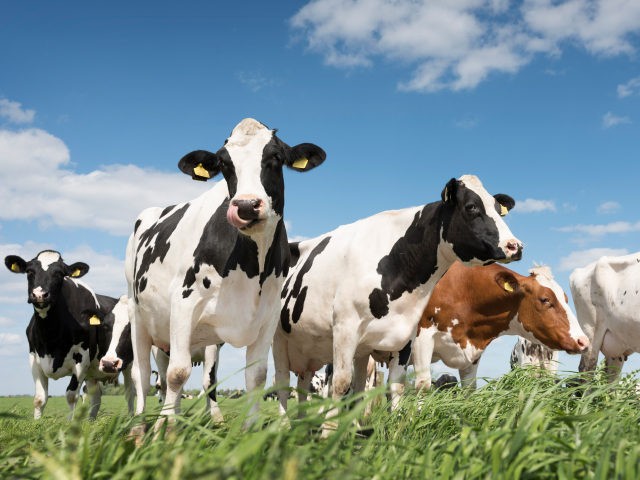The White House on Wednesday argued that ranchers and farmers should still try to reduce cattle emissions in order to prevent climate change, which would also help reduce meat prices.
National Economic Council director Brian Deese blamed industry consolidation and supply chain disruptions caused by the coronavirus pandemic for rising meat prices. But he also warned about supply disruptions caused by climate change.
“Resilience is also important with respect to the realities of a climate-affected world and a climate-affected country,” Deese said in response to a reporter who asked him about emissions caused by meat production.
The left frequently argues against meat consumption, noting that the methane gas issued by cow farts hurts the ozone layer protecting the earth.
Deese pointed to recent “extreme” natural disasters, such as wildfires, flooding, and hurricanes — which he blamed on climate change — for disrupting supply chains.
He added that the Biden administration would continue pushing more farmers and ranchers to produce products that would actually help reduce emissions.
Deese said Biden wanted to continue “transitioning our agricultural system to be part of an effort to actually reduce emissions across the board.”
He argued that it was possible for farms and ranges to make the transition without raising prices for groceries in the United States.
“We can do that in a way that actually doesn’t end up in a situation where American consumers are left paying higher prices and Americans farmers are left with less income,” he said.
Secretary of Agriculture Tom Vilsack spoke about the Biden administration creating ways for farmers to convert agricultural waste into products that would give them more return on their investments.
“That is a real possibility in this administration with the passage of the reconciliation bill and the infrastructure bill,” he said.
Deese said that meat prices, such as for beef, chicken, and pork, were the primary cause of heightened grocery prices across the country.
“If you take out those three categories we’ve actually seen price increases that are more in line with historical norms,” he said.
Deese also blamed the increased consolidation of meat production facilities for keeping prices high, which he said raised “concerns” of companies “pandemic profiteering” without passing on their record profits to farmers and ranchers.

COMMENTS
Please let us know if you're having issues with commenting.